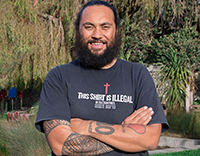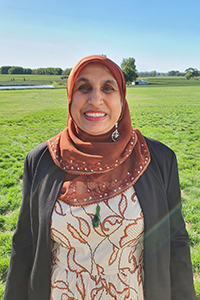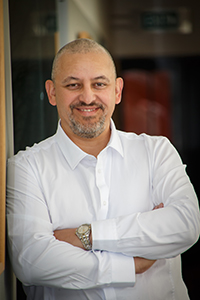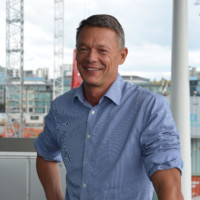Introduction
The final theme in our series looking at kaupapa and accountability and trust, value is perhaps the most controversial and challenging topic.
What is value?
When considering value from an economic perspective, we can look at the perspectives of a range of influential economic thinkers.
Economic value is measured by the benefit provided by a good or a service to a person or organisation that produces, buys, or sells. Value is often linked to price through an exchange of money between buyers and sellers.
The “paradox of value”, or the diamond-water paradox, has been recognised by thinkers as early as Plato. This paradox suggests that water is essential for life and therefore should demand a higher price than diamonds. However, this is at odds with what is observed. Water is clearly more valuable to a thirsty person than diamonds, but diamonds are more valuable to a non-thirsty person than water. To solve the paradox, we have to look at the specific water/diamonds in question, not total water or diamonds. This solution represented an important development in economic science during the late 19th century, known as the marginal revolution.
Austrian economist, Ludwig Von Mises, said about value, “To prefer and to set aside, and the choices and decisions in which they result, are not acts of measurement. Action does not measure utility or value; it chooses between alternatives”. In Mises view, value is felt and there is no mechanism to meaningfully attach a number to it. So someone can say they like peanut butter more than marmite, but they can’t convey any additional information by saying they like peanut butter 10 and marmite 4. In this way, value is subjective.
More recently, Australian economist, Steve Keen, claims "value" is "the innate worth of a commodity, which determines the normal ratio at which two commodities exchange”. In this example, value is calculable, determined by the sum of the cost of all the resources that went into producing a good or service.
Economic theory has an array of viewpoints on what economic value is, but what about values?
What about values?
Values are the central feature of any culture. Cultural values are reflected in how people work, raise families, consider acceptable social behaviours, and in what people regard as status symbols and who they view as role models.
Differences in cultural values can be seen in differing societal world views, such as:
- Individualist versus collectivist - I versus we
- High versus low power distance – Societies with social classes value social mobility more than egalitarian societies
- Being versus doing – Differing approaches to time (circular or linear) and urgency (low sense or high sense)
- Indulgence versus restraint – Prioritising personal enjoyment (hedonism) or adhering to social norms.
For Māori, values are embedded in te reo me ona tikanga (the Māori language and its cultural customs), and are woven through the fabric of Māori society. These values can also be seen in the public and private sector, in particular, in the operations of Māori entities. These values include:
- Kotahitanga – Unity, a shared sense of belonging
- Tino rangatiratanga – Self-determination, ownership, control
- Whanaungatanga – Valuing relationships
- Kaitiakitanga – Stewardship of natural resources
- Manaakitanga – Hospitality, generosity, and care.
Tom Bilyeu, founder of Impact Theory, considers your values to be those things you believe to be true and which guide your actions in the world. So you choose your values, and act in accordance with them. This theory in itself is a reflection of a particular cultural worldview about values.
What does value have to do with values?
Value is frequently contrasted with values as though they are conflicting and irreconcilable forces. But organisations function inside societies that have values, and the people that produce goods and services for these organisations, at all levels, have values. These values contribute to the kaupapa, the culture, and the operations of organisations. People choose which organisations to work or volunteer for, to support or invest in, and buy from and supply, based on their organisational values.
Value and values are also very similar to the extent that they both reflect what is important to people. In Te Ao Māori, waterways have value even if they are not used for drinking, irrigation, fishing, or travel, because they have mauri (vital life force) and the water itself is a taonga (treasured possession).
Even the Companies Act 1993 talks about the “value of the company as a means of achieving economic and social benefits through the aggregation of capital for productive purposes”, not just financial outputs.
Where to next?
We’re interested in people’s views on whether there’s a difference between value and values, and what it means in different organisations. In particular, we’re curious about what it means to be values-driven and kaupapa-led.
Our high level questions are:
- How do entities measure value and their contribution?
- How do they communicate value?
- What does value mean when you’re a kaitiaki of people and resources?
We will be delving into value with contributions from thought leaders around Aotearoa in a webinar, podcast kōrero, and a guest website article.
Our thought leaders on value

Podcast – Ronji Tanielu
Ronji Tanielu, married to Rabena, is of Samoan/Tokelauan heritage, born in Apia Samoa and raised in the Capital of the Universe, Mangere, South Auckland. Ronji and Rabena returned to NZ after spending two years overseas, serving as tentmaker (self-funded) Christian missionaries in over 30 countries, working with persecuted Christians, business as mission projects, sex trafficking and local orphanages.
Ronji works as a Lawyer and Advisor for the Social Policy and Parliamentary Unit of The Salvation Army, working in advocacy and policy around justice reform, addictions services, welfare reform, housing, youth and children and NGOs. Ronji would never call himself a researcher or academic. But Ronji’s job is to be as positively disruptive and troublesome as possible to politicians, bureaucrats, and other stakeholders. Viia le Atua i mea uma!

Webinar – Anjum Rahman
Anjum Rahman is the Project Lead of the Inclusive Aotearoa Collective Tāhono, an organising working on creating a stronger sense of belonging through connections and collaboration. She is a chartered accountant with over 25 years’ experience, working with a range of entities in the commercial, farming and not-for-profit sectors.
She also commits to various volunteer roles in the community. She was a founding member of the Islamic Women’s Council of New Zealand, an organisation formed in 1990 to bring Muslim women together and represent their concerns. She has also been a founding member and trustee of Shama, Ethnic Women’s Trust, which supports ethnic minority women through its social work service, life-skills classes and community development. She has worked in the area of sexual violence prevention both as a volunteer and as part of Government working groups. Anjum is a Trustee of Trust Waikato, a major funder in the Waikato Region.
Anjum has been an active member of the Waikato Interfaith Council for over a decade, a trustee of the Trust that governs Hamilton’s community access broadcaster, Free FM. She is a member of international committees around dealing with violent extremist content online, such as the Christchurch Call Advisory Network and the Global Internet Forum for Countering Terrorism.

Webinar – Dr Jason Mika
Dr Jason Mika is Tūhoe, Ngāti Awa, Whakatōhea, and Ngāti Kahungunu on his mother’s side and has French and Scottish ancestry on his father’s side. Jason was born in Whakatāne and raised in Rotorua, but now resides in Palmerston North. Jason is a senior lecturer at Massey University’s School of Management and a director of Te Au Rangahau, Massey Business School’s Māori business research centre.
Jason’s research, policy and practice focuses on understanding how indigeneity and entrepreneurship intersect in multiple sectors, scales and sites. Jason’s current research includes Māori agribusiness, Māori marine economy, Indigenous tourism, kaumātua entrepreneurship, genomic research of taonga species, Indigenous trade, and a Māori theory of value, all with a focus on Māori economy, enterprise and innovation. Jason’s work has been published in mainstream business journals and Indigenous journals.

Webinar – Jo Cribb
Jo Cribb is an experienced consultant who has led a variety of projects and assignments. Jo was the previous Chief Executive of the Ministry for Women. One of the youngest Chief Executives ever appointed in the New Zealand Public Service, she has invested her time and energy in advancing the cause of the vulnerable in society, spearheading some of the most difficult issues of our time, including child abuse, child poverty, family violence and vulnerable women.
She is regularly asked to facilitate strategy sessions with leadership teams, coach emerging leaders and lead substantial policy, strategy and gender projects. Formerly the Deputy Children's Commissioner and leader of the Commissioner's Expert Advisory Group on Solutions to Child Poverty, Jo is a director on a number of boards, including the New Zealand Media Council, Royal New Zealand Navy Leadership Board, Literacy Aotearoa, and CORE Education Ltd. She has a Doctorate in Public Policy that investigated the contracting relationship between governments and NGOs.

Guest article – Mark Pascal
Mark is passionate about all things decentralised / blockchain for common good. He is the founder of TheDAO.agency (a DAO based out of New Zealand providing a range of services in the Blockchain, decentralised governance and Decentralised Autonomous Organisation space) and one of the founding members of the Metacartel Venture DAO.
Some of Mark’s career highlights include running the first University course in the world on DAOs, bringing Vitalik Buterin and Andreas Antonopoulos over to NZ, co-founding Blockchainlabs, pollinator for the DAOStack Genesis DAO, and Executive Director of BlockchainNZ
He has been featured in Decentralized Thriving, has presented at a select committee hearing for the NZ government, and at over 40 conferences in 6 countries on decentralisation topics. Mark is currently hatching The Wellbeing Protocol (a project building micro-economies that align economic incentives with community wellbeing).
Webinar recording
Recorded 4 May 2021, our webinar on value and values explores what it means to be values-driven and asks, what’s the value of values?
Panelists include:
- Anjum Rahman – Inclusive Aotearoa Collective Tāhono
- Dr Jason Mika - Te Au Rangahau, Massey University
- Jo Cribb – Consultant, director, and author
Podcast with Ronji Tanielu
We kōrero with Ronji Tanielu on what shaped his values and what it means to out-work your values in the world.
The Wellbeing Protocol - Guest article with Mark Pascall
Sometimes it’s really hard to think outside the square.
The square is our current economic system and the organisational power structures (both free market and state) that we, as a society have gradually built up. The technological revolution (and in New Zealand colonisation) has, in just a few generations, caused a massive power imbalance between the three pillars of society: the free market, state, and community. Many believe that the migration of power and control away from our local communities to the free market and state is the root cause of many of the problems that society is facing today from inequality through to the environmental catastrophe.
The huge amount of power and money that is currently in the hands of a few people on the west coast of America [home of Silicon valley] is one of the inevitable results of a capitalist system that now has the technological means to achieve global scale centralisation via disintermediation. To think that these mega organisations, with deep power and control hierarchies are somehow “values driven”, is somewhat farcical.
It reminds me of Google's previous infamous employee code of conduct “Don’t be Evil”, which ended up being parodied “*except if it’s profitable”. Which of course sparks a wider debate: can any “for profit” organisation that separates the workers and users from the shareholders ever be genuinely “values” driven, when their goal has to be to create “value” for shareholders? Aren’t the “values” (posted on the walls of head office and the website) mostly used as a tool to help bring cohesion, efficiency and ultimately profit the privileged few at the top? Can there ever be genuine “values” in such an organisation?
So how can we possibly start to correct this imbalance and transition towards a society that is made up of organisations where human values such as wellbeing and resilience as their key measures of success instead of share price?
At The Wellbeing Protocol we believe that there is another approach to building genuine values based entities that have the potential to scale and make systemic change.
We believe for the first time in human history we not only have the technology and the knowledge to achieve this but we also have the motivation: our very existence as a species is at stake. There have been a number of key events in my career/life that have caused me to rethink the paradigm I was in and ultimately helped craft the concepts behind the project.
The first was getting ill. In my mid 20’s I came down with what I assumed was flu but turned out to be Chronic Fatigue Syndrome that plagued me for the next 10 years of my life. That journey of ill health took me in many different directions but ultimately was a journey of learning and discovery. Many years into the illness was the discovery that human wellbeing is so much more than having basic needs met and having a physically healthy “body”. I began to appreciate the importance of the interconnectedness of the mind and body, and the importance of so many other factors such as having purpose, hope, empowerment, autonomy, being in nature and having strong human relationships.
The second time I had to rethink many of my prior assumptions was when I came across a book called Reinventing Organisations. For many years I had been running a software company. We thought we were pretty radical at the time (e.g. embracing Agile, Open Source and new shiny technologies). But reflecting back on it now, we were very much operating in a traditional business paradigm (i.e. shareholder agreements, KPIs, employment contracts, power/control hierarchies etc). We, like most other businesses then and now, were essentially a hierarchically designed machine constantly trying to become more efficient. As that machine became bigger, I, as the leader, found myself not only moving further away from the parts of the business I most enjoyed but I also found myself dealing with harder and harder problems and that stress was impacting other parts of my life.
I also began to question the “why” behind it all.
Was the purpose of the company really something that had meaning? Reading “Reinventing Organisations” (I recommend this presentation as an introduction) completely changed my frame of reference. I realised that there was an alternative path, a path radically different from the one I had been taking for the previous 15 years and how we are all taught in the business world. There was a different way to create organisations that were not only truly values driven but didn’t have a power/control hierarchy, were scalable, could more easily support human wellbeing and could have genuine “organisational agility” better suited to a world or rapid change.
The third paradigm changing event in my life occurred around the same time. In 2014 I went to a conference in Queenstown called Bitcoin South where many of the international Bitcoin experts (there weren’t many at that time) converged for a three day event. I went knowing nothing about this space but after day two I realised that the decentralised technology architecture, blockchain, that underpinned Bitcoin gave us a way to build new types of system. Systems where the data and business rules are encoded in transparent, immutable and unstoppable code that no single party controls. It gave us the ability to create “self-sovereign” systems where we, as individuals, can take back control of our data, identity and rights. From that point on, decentralisation became a big part of my life.
What was even more fascinating was how this blockchain and smart contract technology started the new discipline now known as “Tokenomics” (a kind of intersection of governance and gamification). And from this emerged a new type of organisation never seen before: the Decentralised Autonomous Organisation or DAO. This is my favourite definition of a DAO:
A DAO is an open organisation that aims to most efficiently achieve a set of purpose-driven goals through the use of independent agents driven by incentive mechanisms.
Suddenly the line between an organisation, a community, and an economy started to blur. As did the line between a shareholder, a user, or a community member. DAO tokens not only allowed permissionless, democratised ownership of DAOs but also allowed other things such as usage rights, governance and reputation tracking.
The final paradigm shifting concept I came across that brought everything together was the work done by Elinor Ostrom. Elinor was the first woman to receive the Nobel Prize in Economics. She spent many years studying “the commons” - those things that we all own together, that are neither privately owned, nor managed by the government on our behalf. Some are large scale and abstract, such as language, the air we breath, our culture. Others are local, more tangible and localised: for example a forest, a river or a community garden.
The tragedy of the commons is the situation in a shared-resource system where individual users or groups, acting independently according to their own self-interest, behave contrary to the common good of all users by depleting or spoiling the shared resource through their collective action. Our current western dominated political system is sceptical of the commons, it generally takes the view that if nobody takes responsibility for something, it will inevitably be abused. So either it needs to be in private hands, or run by public institutions.
Elinor's years of research basically tried to answer a simple question: without top down regulation are there conditions under which the tragedy of the commons can be avoided. And fortunately for humanity there are. She defined the 8 Principles for Managing a Commons. At the heart of these principles is the idea of localism. I love her quote
There is no reason to believe that bureaucrats and politicians, no matter how well meaning, are better at solving problems than the people on the spot, who have the strongest incentive to get the solution right.
Her work aligns with our indiginous cultures' worldview that local cooperation is what defines us evolutionarily as a species and that humanity and nature are inextricably interconnected. Veronika Meduna previously discussed these concepts in relation to Mātauranga Māori in her article Kaitiakitanga: Seeing Nature as your Elder.
So imagine if you could create a DAO that represented a local community - let’s say the size of East Porirua. A DAO that looked more like a local economic operating system (with its own community currency) than an organisation. Imagine if you could consider community wellbeing as a “commons” and embed Ostrom's eight principles into the design of the system. Could you create an entity optimised for community wellbeing and local values instead of profit/power for the people in control and national GDP?
Imagine also if that system could be designed to fundamentally change the relationship between the (many would argue) fragmented, bureaucratic, inefficient and disempowering welfare/charity system that has evolved to help the people in our society who are unable or unwilling to benefit from the capitalist system. Could a system be designed to give more voice, more control, more power to the “people on the spot”? Could that system also make it really easy for the people and organisations with resources and motivation to make a difference, to support and amplify locally created wellbeing initiatives?
Could you create an entity that was truly “values” driven and could that model be quickly replicated in other communities?
We think you can and we are going to give it a go. We believe New Zealand, in a post Covid world within our straining local and global economic systems, is a perfect time and place to make this happen. We also know that we don’t have all the answers, have to start small and it will be a journey of co-creation with the community.
Our first step is a trial now running in Porirua East. With support from the people within the Porirua East community, Wesley Community Action, Ngāti Toa, Creative HQ, Minter Ellison, TV3 and a whole lot of wonderful individuals from New Zealand and around the world who are donating time and resources to the project. The concept of using new technologies in support of localism has even attracted the interest of the United Nations in New York.
We are currently looking for philanthropic donors who can join us on this amazing journey. We could probably also do with some senior political support as creating something outside the box will inevitably pitch us against the people who are tasked with keeping the box intact :)
More information at The Wellbeing Protocol.